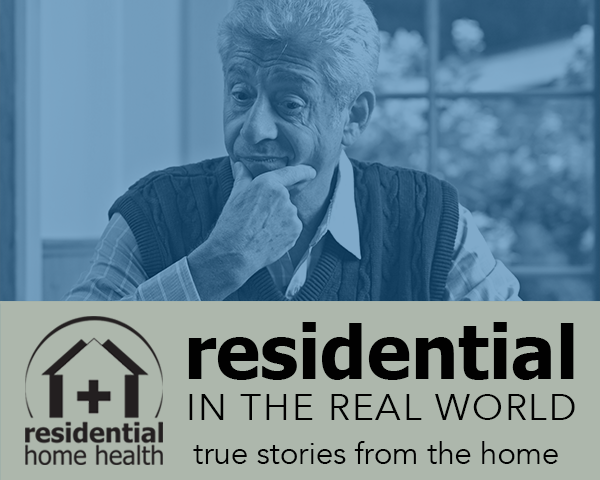 In life and in health care, we all have barriers to success. But some obstacles are easier to spot than others. Physical symptoms, such as a tremor or shortness of breath, can be quickly spotted by a clinician and addressed appropriately. But often the barrier is invisible: fear of falling, unwillingness to give up certain foods, or something else that breeds discouragement. We’re not always inclined to announce our invisible barriers, so for someone else to discover them takes time, attention, and patience.
In life and in health care, we all have barriers to success. But some obstacles are easier to spot than others. Physical symptoms, such as a tremor or shortness of breath, can be quickly spotted by a clinician and addressed appropriately. But often the barrier is invisible: fear of falling, unwillingness to give up certain foods, or something else that breeds discouragement. We’re not always inclined to announce our invisible barriers, so for someone else to discover them takes time, attention, and patience.
For Taresa, a Residential nurse and case manager, one patient presented a puzzle that at first she couldn’t solve. Yet with careful deduction and gentle coaching, she recognized an invisible barrier that was so hidden, no one else had discovered it. Read on to learn about her compassionate actions, and the incredible health breakthrough that followed.
Appearing Uncooperative
The patient was beginning his Residential Home Health plan of care to treat his diabetes and hypertension. He had a history of not taking his medications, not following a diet, not testing his blood sugar, and skipping important appointments and tests, including a colonoscopy. Neither his doctor nor the hospital had had success getting the patient to participate in his own care. The patient had been referred to Residential after his most recent hospital visit, and Taresa was tasked with providing education about his disease process, medications, and diet.
Reading Between the Lines
When Taresa began the standard medication reconciliation at the start of care, she noticed that although the patient had all of his medications filled and in the home, he had not taken any of them. She grabbed a pill box from her supplies and asked the patient to check the label and organize his doses. The patient could not get it right, and after some trial and error, Taresa realized he couldn’t read the label. All that time, the assumption had been made that because the patient spoke English, he could read and write in English as well. But in fact, he could only read and write in his first language, German.
Taresa immediately called everyone involved in the patient’s care to get help with making language accommodations. The pharmacy provided medication bottles with labels in German, and Taresa coached him to fill his pill box correctly. The hospital sent educational information about diabetes management as well as directions for his colonoscopy procedure, all in German, and had a translator call to talk through the instructions. The glucometer company mailed instructions in German for using the device to check his blood sugar. The patient had obscured his difficulty even from his daughter; after speaking with Taresa, she agreed to get more involved in helping her father manage his own care.
No More Hospitals
At the time of his discharge from his Residential Home Health plan of care, the patient was taking all medications as prescribed, testing and logging his blood sugar, attending physician appointments and scheduled tests, and maintaining his prescribed diet. He had a better understanding of how health care could help him and had become an active participant in his care. The patient has not needed to return to the hospital or to resume home health care — finally armed with the tools to remain independent at home, he’s eagerly taken command of his own health and chronic disease management.
No matter what your health challenge, Residential Home Health offers a range of services to help you work toward your health goals safely at home. Call (888)930-WELL (9355) to discuss your specific situation with a Home Care Specialist today, or click the image below to take our 60-second, 15-question Home Care Assessment.
{{cta(‘3073a01b-4a0b-41c6-91c0-460ecd8e3277′,’justifycenter’)}}

